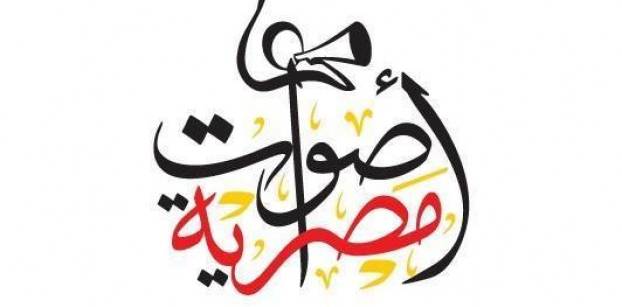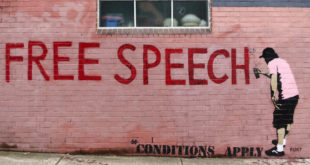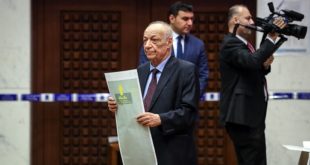CAIRO, Nov. 10 (Aswat Masriya) – On Monday The Arab Network for Human Rights Information (ANHRI) denounced the suspension of Azza Elhenawy, an anchorwoman at Egypt's state television for comments she made on her show earlier this month.
On Nov. 1, Elhenawy called for a law to hold officials accountable for negligence and corruption in a show aired on "Cairo" channel. "This starts with you," she said, addressing President Abdel Fattah al-Sisi, "and includes every member of the government." Her three-minute heated monologue was triggered by news of a building collapse, which she said was caused by the corruption of municipality officials.
A video of her monologue was widely circulated on social media, with some users labelling her "the bravest anchorwoman in Egypt." A week later, she was suspended pending an investigation.
In the decision to suspend Elhenawy, Egyptian state TV management said that she violated the basic principles of professionalism by "expressing her personal opinion." In an appearance on a talk show on private channel ONTV, Elhenawy said that she told her investigators that expressing her opinion is "not an accusation," adding that it is her right as a citizen and as a media practitioner.
ANHRI said in a statement on its website that Elhenawy's case "highlights the double standard policy" in the Egyptian media climate, pointing to the fact that media professionals are not investigated if they praise "the president or the government.” It added that "administrative investigations should not be used to harass media professionals working" for state television and called for reinstating Elhenawy and allowing her to resume work normally.
Press freedom and freedom of expression in Egypt have been under scrutiny for years. In 2015, several journalists have been tried for work they published. In late September, the Committee to Protect Journalists (CPJ) said that currently at least 18 journalists are behind held behind bars in Egypt for their work.
The Egyptian constitution states that freedom of the press is guaranteed. It also states in Article 71 that no freedom-restricting penalty may be imposed for "publishing crimes." However, it does leave it up to the penal law to decide on the penalty undertaken for incitement, discrimination or impingement of honor.
Top Egyptian officials have repeatedly denied that journalists in the country are being targeted because of their work. In August, President Abdel Fattah al-Sisi denied that any journalists are detained in cases related to publishing or press freedom.
A version of this article originally appeared in Aswat Masriya.
 Arab Media & Society The Arab Media Hub
Arab Media & Society The Arab Media Hub





